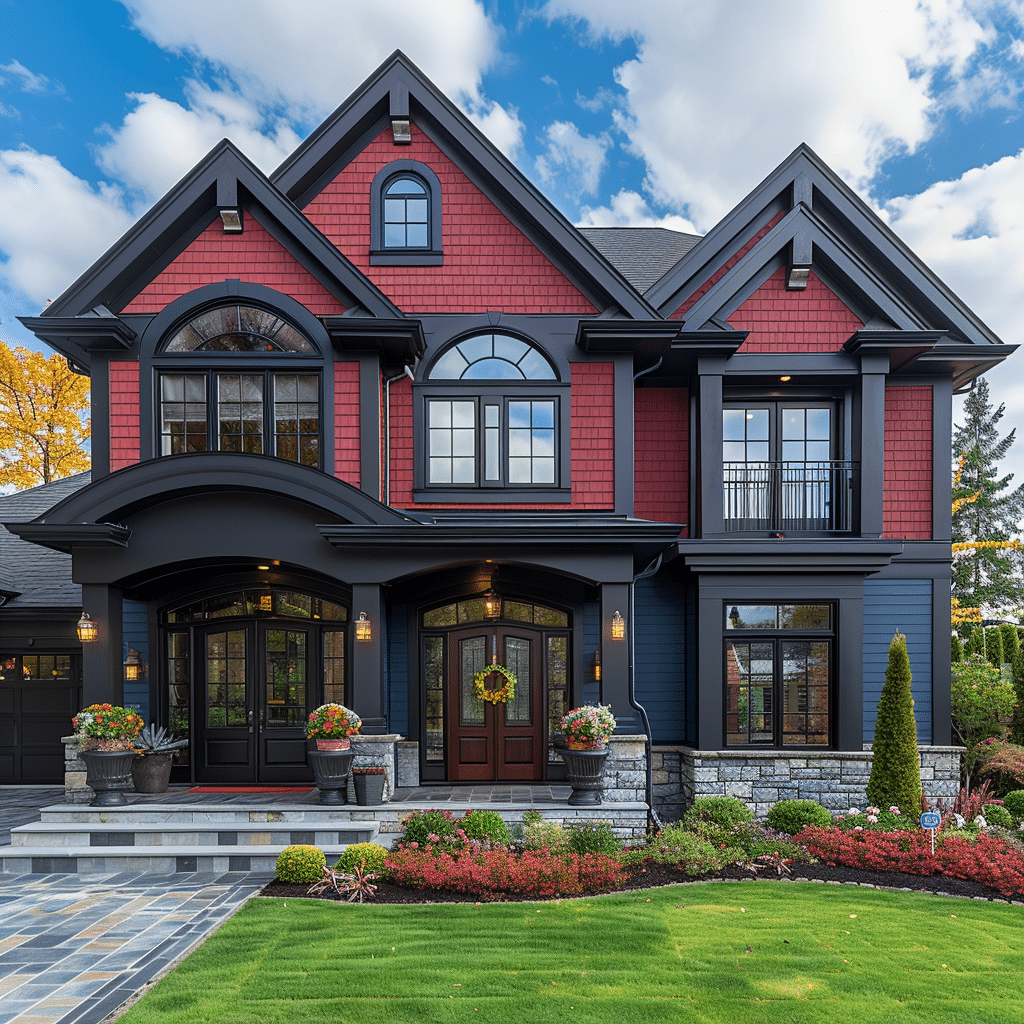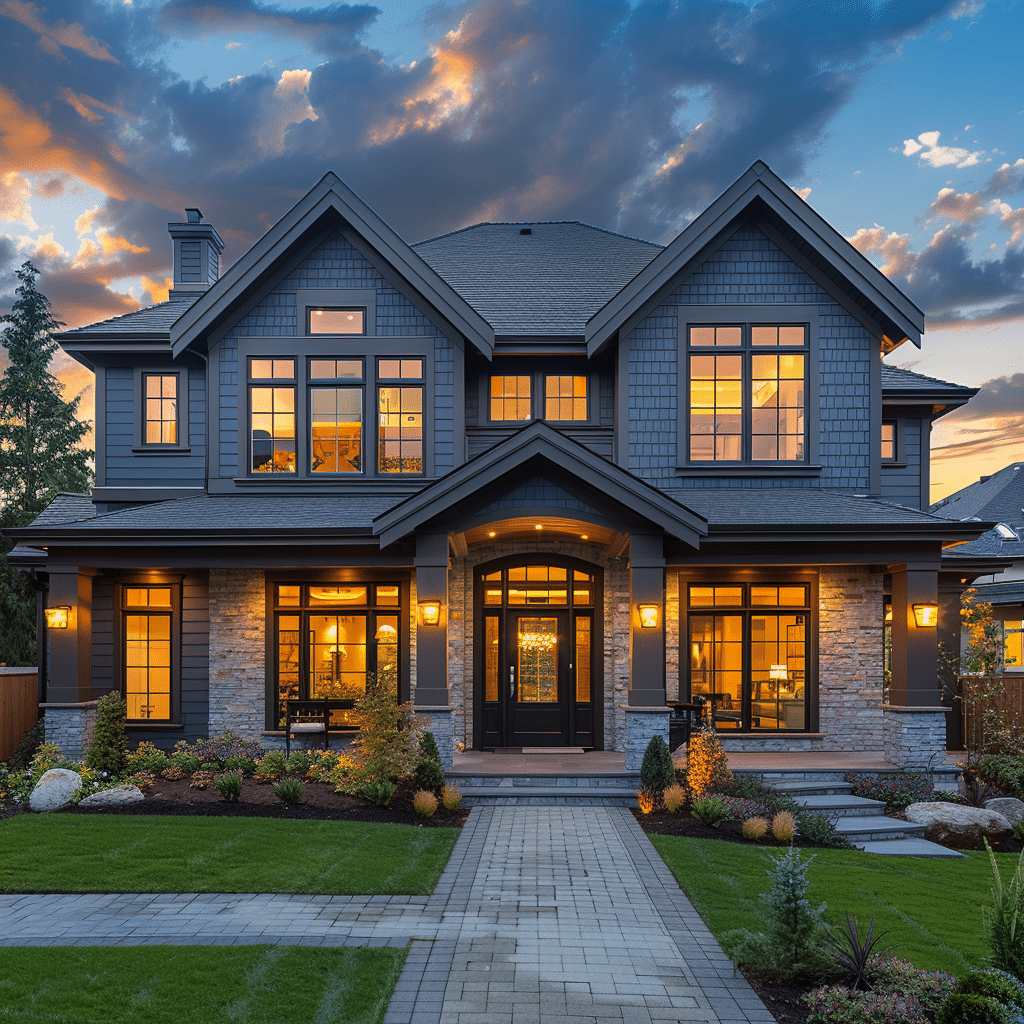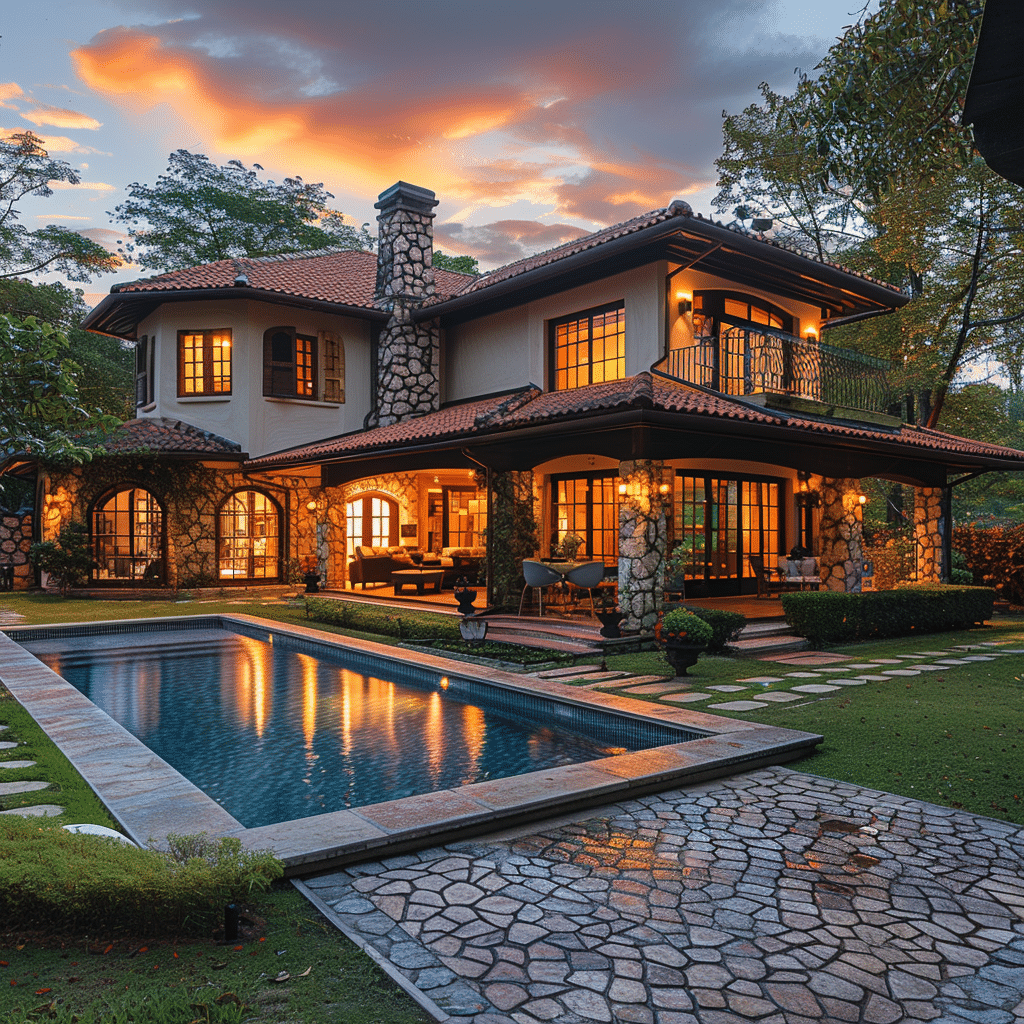Understanding the real cost of buying a house is crucial, especially as we head into 2024. Many folks wonder, “How much does a house cost?” The short answer: it’s complicated. The price tag includes more than the initial purchase price. You’ll also need to consider closing costs, ongoing maintenance, and mortgage interest rates which have been on a wild ride lately.

Understanding House Cost In 2024
Buying a home isn’t just about the “sticker price.” In 2024, understanding how much a house costs involves a mosaic of factors. Aside from the initial purchase price, consider additional costs like closing expenses, maintenance, and fluctuating interest mortgage rates. These components together shape the true cost of homeownership.

What Influences How Much A House Costs?
1. Location, Location, Location
When it comes to real estate, the mantra is location, location, location. It’s the main player in the price game. For instance, a modest three-bedroom home in San Francisco can soar over $1.5 million due to high demand and limited supply. Conversely, a comparable home in rural Ohio might only set you back around $200,000. Geographic disparities can be staggering and they hugely impact how much a house costs.
2. Market Trends and Economic Factors
The housing market doesn’t exist in a vacuum. Broader economic trends influence it greatly. In 2024, rising interest rates compared to previous years have impacted home affordability. Inflation, too, plays a role by bumping up construction costs, which developers often pass on to buyers.
3. Size and Type of the House
Size and type matter when asking how much is a house. Luxury condos in areas like New York City’s Hudson Yards can easily average about $4,000 per square foot. Meanwhile, a luxurious single-family home in the suburbs could offer much more space for a lower price per square foot, especially considering added amenities and larger land lots.
4. The Builder’s Reputation
Who builds the house also affects the cost. Homes from reputable builders like Lennar typically demand a premium because they’re seen as higher quality with better customer service. Buyers are often willing to pay extra for peace of mind.
5. Bargaining and Negotiation
Don’t underestimate the power of negotiation! Skilled negotiators can reduce house costs significantly. From better financing terms to added perks like reduced closing costs or upgraded amenities, haggling can make a noticeable impact.
| Category | Details | Example Cities (USA) | Cost Range (USD) | Factors Affecting Costs |
| Location | Urban vs. Suburban vs. Rural | New York, NY | $500,000 – $1,500,000+ | Proximity to amenities, land value |
| Charlotte, NC | $300,000 – $700,000 | |||
| Des Moines, IA | $200,000 – $400,000 | |||
| Home Size | Small (≤1,500 sq.ft) | Various | $150,000 – $300,000 | Total square footage, layout efficiency |
| Medium (1,500 – 2,500 sq.ft) | Various | $250,000 – $500,000 | ||
| Large (2,500+ sq.ft) | Various | $400,000 – $900,000+ | ||
| Property Type | Single-family Home | Various | $200,000 – $1,000,000+ | Market demand, architectural style |
| Townhouse | Various | $150,000 – $600,000 | Proximity to urban centers, HOA fees | |
| Condominium | Various | $100,000 – $700,000 | HOA fees, building amenities | |
| Condition | New Construction | Various | $250,000 – $800,000+ | Modern features, energy efficiency |
| Resale | Various | $200,000 – $600,000 | Age of property, maintained condition | |
| Fixer-upper | Various | $100,000 – $300,000 | Renovation costs, potential for equity | |
| Market Trends | Buyer’s Market | Various | Typically lower end of cost range | Higher inventory, lower competition |
| Seller’s Market | Various | Typically higher end of cost range | Lower inventory, higher competition | |
| Interest Rates | Low (e.g., 3%) | Not location-specific | Generally lower monthly payments | Affordability of mortgage payments |
| High (e.g., 7%) | Not location-specific | Generally higher monthly payments | ||
| Miscellaneous Costs | Closing Costs | Not location-specific | 2%-5% of purchase price | Legal fees, inspection, title insurance |
| Property Taxes | Various | Varies (0.5%-2% of home value annually) | Local tax rates, assessed property value | |
| Homeowners Insurance | Various | $500 – $2,000+ per year | Coverage amount, location risk factors |
Real-Life Comparisons: How Much Does A House Cost?
Comparative Pricing: East Coast vs. Midwest
These examples show how location drastically affects house prices, underscoring the complexity of how much does a house cost.
New Builds vs. Resales
Hidden Costs of Homeownership
Ongoing Maintenance and Repairs
Beyond the initial purchase, maintenance looms large. On average, homeowners spend about 1% of their home’s value annually on upkeep. For a $500,000 home, that’s around $5,000 each year.
Property Taxes and Insurance
Regional variations can make a big difference. New Jersey, for instance, has some of the highest property taxes, with a median-priced home incurring around $8,000 annually. Comparatively, Tennessee’s property taxes average only about $1,200 per year.
Mortgage Interest Over Time
The long-term financial commitment can’t be ignored. Taking a $400,000 mortgage at 5.5% interest results in about $417,000 in interest over 30 years. This hidden cost is crucial in understanding how much a house truly costs.
Leveraging Data and Technology in 2024
Real-time Property Analytics
Modern tools have made estimating house costs more accurate. Platforms like Zillow’s Zestimate and Redfin’s home evaluation algorithms use real-time market data to give a clear picture of home values. Buyers get better insights into how much a house is worth.
Virtual Tours and AI
Tech has revolutionized home buying. Virtual reality tours and AI-driven valuation models make it easy to evaluate the market from the comfort of your current home. Companies like Matterport offer 3D tours, making remote shopping seamless.
Analyzing Future Trends and Predictions
Looking forward, the home buying landscape will keep changing. Interest rates are expected to stabilize by 2025, offering hope for calmer waters. Advances in technology will continue to merge with real estate, providing more transparency and smarter, data-driven decisions.
The evolving market for homeownership is teeming with variables, making it imperative to stay informed and make educated choices. As you navigate the complex housing market of 2024, an informed approach is your best ally for strategic and confident home buying. Visit Mortgage Rater for more tips and to get started on your home buying journey.
In light of all these factors, it’s evident that understanding how much does a house cost in 2024 is about more than just the price tag. Whether you’re eyeing the bustling streets of San Francisco or the quieter lanes of suburban Ohio, knowledge and preparedness are key.
How Much Does a House Cost: Shocking Truths
You might be blown away by just how much a house costs these days. From coast to coast, housing prices fluctuate based on various factors, such as location, demand, and amenities. Did you know that the average home price( can vary dramatically even within states? For instance, a house in urban California is likely to cost a pretty penny more than a similar one in rural Arkansas. Let’s throw in some trivia to spice things up!
Surprising Regional Differences
The average home price in America() reveals intriguing regional price differences. On the West Coast, particularly in the Golden State, homebuyers face sky-high prices. Yet, in smaller towns or countryside areas, the prices can be significantly lower. For example, homes near wellness centers like Sundown M Ranch() are often found in serene, less costly regions. It’s like living in a different economic universe!
Mind-Boggling Mortgage Matters
For those hunting for homes in major cities, navigating intricate mortgage options can feel overwhelming. Did you know that Californiamortgage() schemes offer unique terms compared to those in other states? Sometimes, keeping track of all these options makes you reminiscent of choosing between Mets and Padres games—a dilemma! Catch how it all balances between getting a reasonable deal and not breaking the bank. But don’t let uncertainty turn you into a doubt meme;(😉 arm yourself with knowledge and bust those housing myths!
With these eye-opening facts, it goes to show that house prices are anything but straightforward. Next time you ponder how much a house costs, remember these fun tidbits and marvel at the dizzying array of factors influencing the market. Home buying is a journey, but understanding these quirks can make it more engaging—and maybe even a bit fun.




